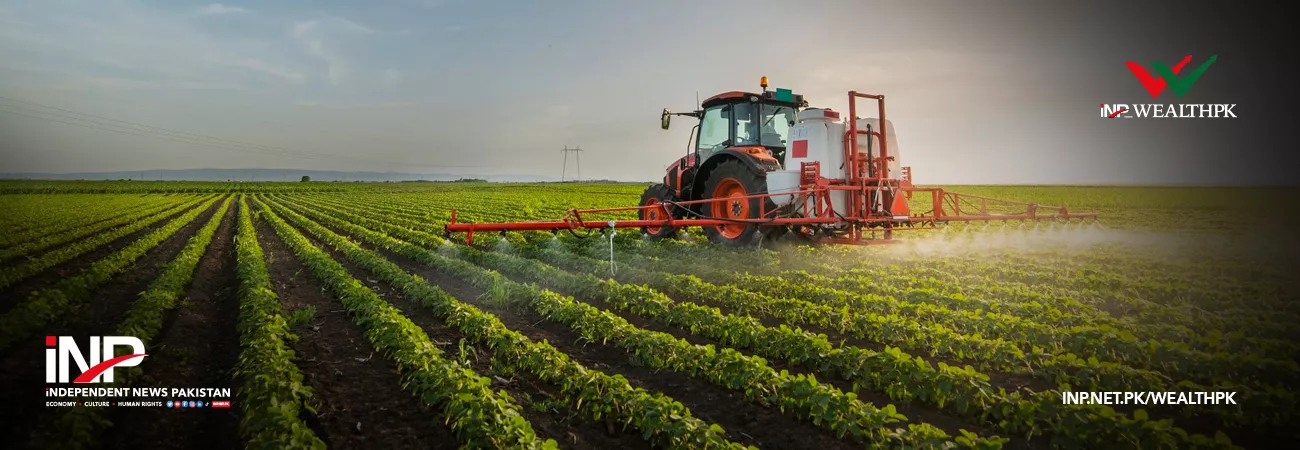INP-WealthPk
Mansoor Sadiq
The solar energy-driven smart agriculture initiatives in the desert areas of the country will reduce the dependence of local farmers on rain for their crops. With an objective to minimise the burden of imported fuel bill, Pakistan is going through a transition phase where all available renewable resources are being employed for agriculture. In this regard, the government has announced shifting agriculture tube wells to solar and wind energy.
The Arid Zone Research Centre (AZRC) is playing a crucial role in introducing the solar-driven agriculture approach through a pilot project since 2020 by providing technical support to farmers. Dr Attaullah Khan, Director AZRC, said while talking to WealthPK that a solar-driven agriculture approach has been conceptualised in the arid areas to make the farmers self-reliant on food. He urged the government to ensure the availability of solar panels at subsidised rates.
For decades, the people of Thar and Cholistan had to take seasonal migration owing to the paucity of food. The locals had to leave their homes along with cattle to move closer to rivers and wait for rain. The new irrigation system powered by solar energy witnessed a significant difference in the farming sector of Pakistan’s southern Thar Desert region, which had been notable for frequent droughts, malnutrition and food insecurity in the past.
Dr Attaullah said that one-third underground water in Thar is sweet water, so roughly, one-third area of the region can be irrigated with underground water pumped through solar and wind energy tube wells. Through this initiative, wasteland area of Thar can be cultivated which will alleviate poverty and empower the farmers. Yaqoob Lashari, a local farmer, while sharing his experience of agriculture through renewable energy tools in Thar region, told WealthPK that he started using solar energy driven irrigation in 2021 on a small level and following the successful initial experience, he increased the agriculture area and cultivated wheat, cotton, pulses and vegetables on six acres out of his total 18 acres of land.
He said that earlier, his crops were heavily dependent on rainwater, and now with availability of water through solar energy driven water pump, he no longer needs to purchase food items from market. Professor Dr Shahzad Basra from the University of Agriculture Faisalabad viewed that with the facilities of water through solar energy, wastelands of Cholistan desert could be turned into fertile lands.
He cited the example of Asif Riaz Taj, a graduate from Faisalabad Agriculture University, who planted about 100,000 saplings on 700 acres of land in Cholistan, and turned the barren swath of land into an orchard. He expressed hope that oranges and olive trees planted in Cholistan will yield huge profits in the coming years. Naseer Memon, expert on climate change and disaster management, said Cholistan and Thar deserts faced frequent droughts during the last three decades which led to mass migration towards riversides. However, he said the practice of migration is likely to stop in the coming years with the development of agriculture through solar and wind energy.
Credit: Independent News Pakistan-WealthPk




